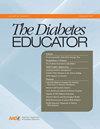Insights Into Veterans’ Perspectives on a Peer Support Program for Glycemic Management
IF 3.9
Q1 Health Professions
引用次数: 6
Abstract
Purpose The purpose of this study was to explore the mentor-mentee relationship in veterans with type 2 diabetes and gain insight into successful pairings. Methods Qualitative semistructured interviews were conducted as part of a peer mentoring randomized controlled trial to understand participants’ experiences, their relationship with their partner, and how the intervention affected self-care behaviors. Purposive sampling was done to ensure adequate representation of mentees who made large strides in reaching their glycemic targets, those who made marginal improvements toward their glycemic goals, and those who got worse. All interviews were audio-recorded, transcribed, and analyzed for salient themes. Results The intervention was well received, with most participants describing it as valuable. Participants perceived the intervention to have a number of benefits, including accessible support, enhanced self-confidence, increased accountability, better self-efficacy, improved glycemic management, and a fulfilled sense of altruism. Participants did encounter barriers, including logistical, interpersonal, and individual obstacles. The more successful mentees tended to be more effusive in their description of their mentors, endorsed a stronger sense of connection to their mentor, described a more structured interaction with their mentor, and tended to be more complimentary of the intervention. Conclusions Large peer support programs are appealing and well received. These programs can be optimized by selecting naturally inclined mentors, providing additional training to introduce more structure into mentorship interactions, and targeting mentees who are not struggling with overwhelming comorbidities.退伍军人对同伴支持血糖管理项目的看法
目的探讨2型糖尿病退伍军人的师徒关系,了解成功的师徒关系。方法采用质性半结构化访谈作为同伴辅导随机对照试验的一部分,了解参与者的经历、与伴侣的关系以及干预对自我照顾行为的影响。有目的的抽样是为了确保充分代表那些在达到血糖目标方面取得了巨大进步的学员,那些在血糖目标方面取得了微小进步的学员,以及那些变得更糟的学员。所有的采访都被录音,转录,并分析了突出的主题。结果干预效果很好,大多数参与者认为这是有价值的。参与者认为干预有许多好处,包括可获得的支持、增强的自信、增加的责任、更好的自我效能、改善的血糖管理和实现的利他意识。参与者确实遇到了障碍,包括后勤、人际关系和个人障碍。更成功的学员在描述导师时往往更加热情洋溢,对导师的联系感更强,与导师的互动更有条理,对干预的评价也更高。结论:大型同伴支持项目很有吸引力,并且很受欢迎。这些项目可以通过选择自然倾向的导师,提供额外的培训以引入更多的指导互动结构,以及针对那些没有与压倒性的合并症作斗争的学员来优化。
本文章由计算机程序翻译,如有差异,请以英文原文为准。
求助全文
约1分钟内获得全文
求助全文
来源期刊

Diabetes Educator
医学-内分泌学与代谢
CiteScore
4.00
自引率
0.00%
发文量
0
审稿时长
6-12 weeks
期刊介绍:
The Diabetes Educator (TDE) is the official journal of the American Association of Diabetes Educators (AADE). It is a peer-reviewed journal intended to serve as a reference source for the science and art of diabetes management.
TDE publishes original articles that relate to aspects of patient care and education, clinical practice and/or research, and the multidisciplinary profession of diabetes education as represented by nurses, dietitians, physicians, pharmacists, mental health professionals, podiatrists, and exercise physiologists.
 求助内容:
求助内容: 应助结果提醒方式:
应助结果提醒方式:


